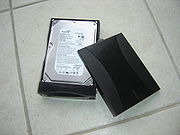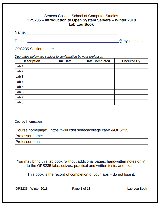Difference between revisions of "SEC520"
m (Protected "SEC520": OER transfer ([Edit=Allow only administrators] (indefinite) [Move=Allow only administrators] (indefinite))) |
|||
| (One intermediate revision by one other user not shown) | |||
| Line 9: | Line 9: | ||
!style="background: #cccccc"| Assignments | !style="background: #cccccc"| Assignments | ||
|- | |- | ||
| − | |<!-- [[OPS235 FSOSS Bonus Assignment|FSOSS Bonus Assignment]]<br /> -->[https://scs.senecac.on.ca/~fac/sec520/assignments/SEC520_Assignment_1.html Assignment 1]<br /> [https:// | + | |<!-- [[OPS235 FSOSS Bonus Assignment|FSOSS Bonus Assignment]]<br /> -->[https://scs.senecac.on.ca/~fac/sec520/assignments/SEC520_Assignment_1.html Assignment 1]<br /> [https://my.senecacollege.ca/webapps/blackboard/content/listContentEditable.jsp?content_id=_7617589_1&course_id=_563094_1&mode=reset Assignment 2] |
|} | |} | ||
Latest revision as of 14:57, 21 July 2023
| Quick Links |
|---|
| Course Outline Course Policies] Security Resources Security Community Instructor Resource |
| Assignments |
| Assignment 1 Assignment 2 |
Contents
Welcome to SEC520 - Internet Security
What This Course is About
This subject explores issues surrounding web site construction, operation, and maintenance from a security point of view. Students will learn how to:
- List basic rules regarding Internet Security.
- Identify attack types from both internal and external sources.
- Conduct safe authorized Penetration Testing (creating and using Virtual Machines).
- Build secure servers from Penetration Testing Results ("hardened" servers).
Major topics will include document encryption, server protection, and defense strategies.
Demonstration web servers for both Windows and Unix/Linux will be investigated during this one semester course.
Course Resources
- [SEC520 Weekly Schedule] (Course Notes / Labs)
- Course Outline
- [Course Policies]
Supplies Checklist (Required Prior to First Class)
Hardware
| Item | Item Details | Graphic |
|---|---|---|
|
SATA Hard Disk in Removable Drive Tray |
There are a few different methods of setting up for the SEC520 lab:
|
Bootable Operating System Images
Note: Although instructions are provided to burn OS for VMs on CD/DVD, there are other methods of installing OS on VMs: USB stick, network install, or by downloaded image file. You can determine the best method to use. Here is a link to installing a VM from saved image file: How to Run ISO Image File in VirtualBox
| Storage Media | Download and Burning Options |
|---|---|
|
Kali Linux CD:
|
|
Study Aids
| Item | Item Details | Graphic |
|---|---|---|
| Lab Log-Book | Download and Print: SEC520 Lab log book [ PDF ] [ odt ]. Please note that you can use your log book during quizzes, written tests, practical tests and the final exam. It's also the record that you have completed the labs, so don't lose it! |
Important Information
|
|
Course Faculty
During the Winter 2018 semester, SEC520 is taught by:
Anthony Austin anthony.austin@senecacollege.ca
x32267, Rm. D2096 (formerly TEL)
Wiki Participation
- You can edit these pages! Please feel free to fix typos or add links to additional resources. Please use this capability responsibly.
- Some simple math skills required for saving edits... >:)



